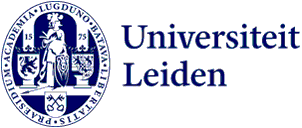
The internet has many bosses. It’s chaotic but it works
Governing the internet is rather chaotic, says Professor Jan Aart Scholte. ‘But it works.’ Not only do national and local governments have a say but also regional and global organisations. Can we learn from this relatively new form of governance with its lack of clear hierarchy?
At the GIG-ARTS conference on 3 and 4 June, internet governance experts (both researchers and policymakers) will discuss who runs the internet. For the non-experts among us, Professor of Global Transformations and Governance Challenges Jan Aart Scholte explains who is at the internet’s helm.
Who is the boss of the internet?
Who governs the internet is complicated. In some areas, governments and intergovernmental collaborations such as the EU have influence. For instance, when it comes to who can use what data and what content should and should not be blocked. But in other areas, states have little to say.
Various international non-profit organisations assign IP addresses and are responsible for domain names and the technical protocols that enable data traffic. These are organisations with names such as Internet Corporation for Assigned Names and Numbers (ICANN), Regional Internet Registries (RIRs) and Internet Engineering Task Force (IETF). Names few people will have heard of.
Organisations with unique powers
These organisations have unique powers, Scholte explains. ‘When Russia invaded Ukraine, the Ukrainian government asked ICANN, for example, to shut down the Russian parts of the internet, so anything with the domain name .ru. That would have helped Ukraine in its war effort. ICANN can do that kind of thing but rejected the request. It believes the internet should remain open to everyone.’
Some organisations also have power in that they decide who gets a domain name. There has been a lot of commotion, for example, about the domain names .africa and .islam. Who gets them? And there have always been arguments about .amazon. Latin Americans felt they were entitled to it because it was their heritage. But in the end, the domain name went to the company Amazon.
Lack of clear hierarchy
Many national, regional and global parties from the public, state and private sectors are involved with the internet, therefore, in what is known as multistakeholderism. All stakeholders who have anything to do with the internet are represented. But there is no clearly defined hierarchy. ‘If there is an argument, the parties continue to disagree until a consensus is reached’, says Scholte. ‘There is no one who can say they are done. It is messy but it works.’
That is why Scholte finds internet governance so interesting. ‘It’s an example of new governance methods. Look at how we handled the coronavirus pandemic. That was also a mess. The WHO had a say, and so did the EU, national governments, cities, municipalities and pharma companies. But we got there in the end and Covid-19 was defeated. We tend to think governance should be orderly but that is not always the case. A bit more mess might mean faster, better, more efficient results.’
Pros and cons of the system
At the GIG-ARTS conference, experts will look back on 35 years of multistakeholder internet governance. Scholte is looking forward to the discussion. He knows that opinions on this system differ. ‘Some think it is democratic because representatives from very many different groups are involved, but others think it unfair because, for example, unelected technical experts exert a lot of influence.’
As for Scholte, he can see pros and cons to this system. ‘If we had decided 35 years ago to build the internet through intergovernmental channels in the UN, we might now have 5.4 million internet users instead of 5.4 billion. And all the technical achievements are incredible. At the same time, the gains lie with a limited number of companies and individuals. So if you are talking about the great inequalities in the world, this system has contributed to them.’
Two conferences: GIG-ARTS and Global Transformations and Governance Challenges
Jan Aart Scholte is the chair of the Global Transformations and Governance Challenges interdisciplinary research programme. In the programme, researchers from disciplines including law, humanities, public administration and social sciences look at how to tackle global transformations in a fair, peaceful, effective, democratic and sustainable way. GTGC is holding its annual conference in The Hague (5-7 June) just after GIG-ARTS. This second conference will focus on improving the governance of global transformations (relating to the climate, economy, migration, and technology). Researchers and other experts are welcome at both conferences.
Text: Dagmar Aarts
Photo: Unsplash
